Rent vs. Buy a Home: The Key to Successful Home Finance
Deciding whether to rent or buy a home is one of the biggest financial choices you’ll make in your life. While both options have their perks, navigating the myriad factors can be overwhelming. How do you know if you’re making the right decision? The answer often lies in understanding some key concepts that impact your budget and lifestyle.
From hidden costs of ownership to local market dynamics, each element plays a crucial role in shaping your financial future. Whether you’re dreaming of homeownership or weighing the flexibility of renting, it’s time to explore what truly makes sense for you financially. Let’s get started and get the best financial route for you.
The 5% Rule and Hidden Costs of Owning
The 5% rule is a handy guideline for prospective homeowners. It suggests that you should account for 5% of your home’s purchase price each year to cover maintenance and unexpected repairs. Homeownership isn’t just about the mortgage payment. Hidden costs can add up quickly, including property taxes, homeowner’s insurance, and utilities.
These expenses often surprise new buyers who focus solely on their monthly payments. Additionally, consider potential HOA fees if you’re in a community with shared amenities or services. They may seem minor initially but can impact your budget significantly over time.
Break-Even Point in Your City
Understanding your break-even point is crucial when deciding whether to rent or buy a home. This figure varies significantly from one city to another. In some urban areas, housing prices skyrocket, making renting more appealing in the short term. In contrast, smaller towns might offer affordable properties that allow buyers to reach their break-even point sooner.
Consider factors like local market trends and property appreciation rates. A thriving job market can boost demand for homes, increasing values quickly. You also need to factor in how long you plan to stay in the area. If you’re relocating often, renting may be a smarter choice than buying into a fluctuating market.
How Mortgage Rates Change the Equation

Mortgage rates play a crucial role in the rent versus buy debate. When these rates fluctuate, they can significantly impact your monthly payments and overall affordability. Higher mortgage rates mean higher monthly payments. This can make homeownership less appealing compared to renting.
On the other hand, lower rates could tip the scales in favor of buying, allowing you to invest in property rather than pay someone else’s mortgage. It’s not just about the immediate costs either. A slight increase or decrease in interest can lead to thousands more—or less—over the life of a loan. Moreover, long-term economic conditions often influence these rates.
Tax Benefits You Might Not Qualify For
When considering whether to rent or buy, tax benefits can be a major factor. However, not every homeowner enjoys the same perks. Many assume they will qualify for mortgage interest deductions. This isn’t automatic and depends on your total itemized deductions exceeding the standard deduction limit.
Homeowners may also miss out on property tax breaks if they fail to apply for local exemptions. Some jurisdictions offer reductions based on age or income, which could significantly lower annual costs. Additionally, capital gains exemptions are often misunderstood. If you sell your home and make a profit but haven’t lived there for two of the past five years, you might face hefty taxes on those gains.
Weighing all these factors will guide you toward the right decision for your lifestyle and financial goals. Whether you choose to rent or buy depends on personal preferences and economic conditions unique to your area. Take time to assess what works best for you. After all, having a roof over your head should be about more than just finances; it’s about finding a place where you truly feel at home.…
Continue Reading



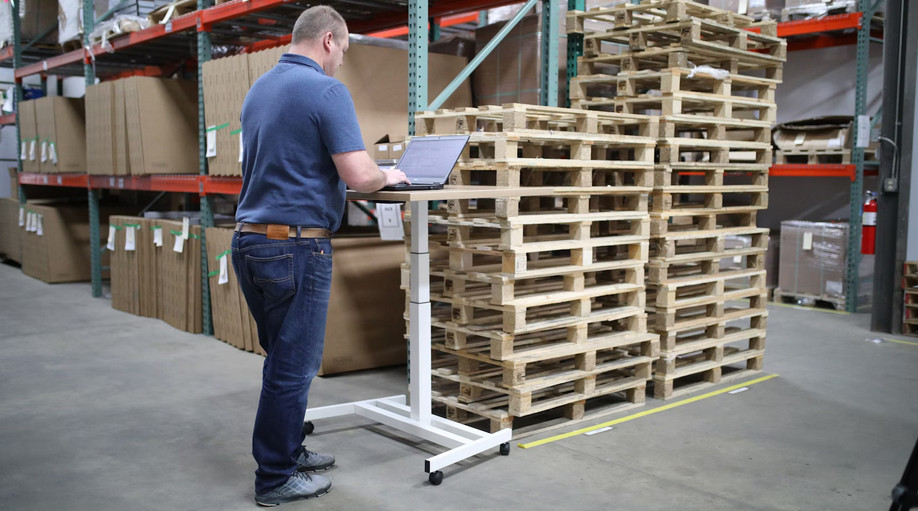





 One way national days impact businesses is that it increases their sales. Connecting the holiday or event to your product or service makes customers more likely to purchase it. You can leverage national days by creating special offers or discounts only available during those times. This encourages people to buy now and take advantage of the savings while they last. So, businesses need to research the holidays and events celebrated in their target market and plan ahead for how they can capitalize on these special days. Big companies like Amazon have been doing this for years, and it’s what smaller businesses must consider doing too.
One way national days impact businesses is that it increases their sales. Connecting the holiday or event to your product or service makes customers more likely to purchase it. You can leverage national days by creating special offers or discounts only available during those times. This encourages people to buy now and take advantage of the savings while they last. So, businesses need to research the holidays and events celebrated in their target market and plan ahead for how they can capitalize on these special days. Big companies like Amazon have been doing this for years, and it’s what smaller businesses must consider doing too.


 Your hair is one of the first things people will notice about you, so make sure it looks good and flawless. If you have long hair, ensure it’s nicely styled and not all over the place. For guys with shorter hair, ensure you get a haircut a few days before your date. This will help ensure that your hair looks its best. One of the most important things to remember is that you should never try a new hairstyle on your first date. Stick with what you know and what looks good on you. Trying something new could backfire and leave you looking like a mess.
Your hair is one of the first things people will notice about you, so make sure it looks good and flawless. If you have long hair, ensure it’s nicely styled and not all over the place. For guys with shorter hair, ensure you get a haircut a few days before your date. This will help ensure that your hair looks its best. One of the most important things to remember is that you should never try a new hairstyle on your first date. Stick with what you know and what looks good on you. Trying something new could backfire and leave you looking like a mess. What you wear on your first date is just as important as how you look. After all, you want to make sure you’re dressed appropriately for the occasion. If you’re going to a nice restaurant, you’ll want to dress accordingly. This means wearing a collared shirt and dress pants or a nice pair of jeans. However, if you’re going to a more casual setting, such as a coffee shop or bar, you can dress down a bit. Just make sure you avoid wearing anything too revealing or sloppy.
What you wear on your first date is just as important as how you look. After all, you want to make sure you’re dressed appropriately for the occasion. If you’re going to a nice restaurant, you’ll want to dress accordingly. This means wearing a collared shirt and dress pants or a nice pair of jeans. However, if you’re going to a more casual setting, such as a coffee shop or bar, you can dress down a bit. Just make sure you avoid wearing anything too revealing or sloppy.
 The first way you can get clarity about your life is by getting a psychic reading. A psychic can give you insights into your past, present, and future that you may not be able to see on your own. This can be a great way to gain some clarity about where you are headed and what steps you need to take to get there. There are many types of psychic reading, but many choose live chat reading. This way, you can get your reading done in the comfort of your own home and ask any questions you may have. If you are interested, here’s the best psychic chat readings.
The first way you can get clarity about your life is by getting a psychic reading. A psychic can give you insights into your past, present, and future that you may not be able to see on your own. This can be a great way to gain some clarity about where you are headed and what steps you need to take to get there. There are many types of psychic reading, but many choose live chat reading. This way, you can get your reading done in the comfort of your own home and ask any questions you may have. If you are interested, here’s the best psychic chat readings. The third way to get clarity about your life is to do some meditation. Meditation can help you clear your mind and focus on what is important to you. It can also help you connect with your inner wisdom and intuition. If you are unsure where to start, many resources are available to help you learn how to meditate. You can find meditation classes in your area or meditation apps that can guide you through the process. Once you learn how to meditate, it will be easier for you to do it on your own. This is a great way to get in touch with your true self and discover what you really want.
The third way to get clarity about your life is to do some meditation. Meditation can help you clear your mind and focus on what is important to you. It can also help you connect with your inner wisdom and intuition. If you are unsure where to start, many resources are available to help you learn how to meditate. You can find meditation classes in your area or meditation apps that can guide you through the process. Once you learn how to meditate, it will be easier for you to do it on your own. This is a great way to get in touch with your true self and discover what you really want.
 One tip to becoming successful is to get coaching and advice from people who have already achieved success in your field of interest. There are many successful people out there who are more than happy to help others achieve their goals. You can contact these individuals through social media, websites, or even by attending events where they are speaking. Getting advice from successful people can help you learn what it takes to be successful and motivate you to keep going when things get tough. However, there are also programs that you can apply for and get help from a professional coach. If you are interested, you should read an article about the real world tate.
One tip to becoming successful is to get coaching and advice from people who have already achieved success in your field of interest. There are many successful people out there who are more than happy to help others achieve their goals. You can contact these individuals through social media, websites, or even by attending events where they are speaking. Getting advice from successful people can help you learn what it takes to be successful and motivate you to keep going when things get tough. However, there are also programs that you can apply for and get help from a professional coach. If you are interested, you should read an article about the real world tate. Lastly, it is important to create a support system in place. This could be family, friends, or even a professional coach. Having someone to talk to and help you stay on track is crucial when trying to become successful at anything. A support system will help you stay motivated and focused on your goals, which is essential if you want to achieve success. Many people think it is unnecessary to have a support system, but it is actually one of the most important things you can have. Many studies have shown that people with a support system are more likely to achieve their goals than those who do not.
Lastly, it is important to create a support system in place. This could be family, friends, or even a professional coach. Having someone to talk to and help you stay on track is crucial when trying to become successful at anything. A support system will help you stay motivated and focused on your goals, which is essential if you want to achieve success. Many people think it is unnecessary to have a support system, but it is actually one of the most important things you can have. Many studies have shown that people with a support system are more likely to achieve their goals than those who do not.
 Eating the right foods is one of the best ways to improve your brain power. Just like any other organ in your body, your brain needs certain nutrients to function correctly. Eating foods rich in antioxidants, omega-three fatty acids, and B vitamins can help support cognitive health and boost brain power. Some of the best brain-boosting foods include blueberries, salmon, dark chocolate, and avocados. The Mediterranean diet is an excellent choice for someone with brain fog.
Eating the right foods is one of the best ways to improve your brain power. Just like any other organ in your body, your brain needs certain nutrients to function correctly. Eating foods rich in antioxidants, omega-three fatty acids, and B vitamins can help support cognitive health and boost brain power. Some of the best brain-boosting foods include blueberries, salmon, dark chocolate, and avocados. The Mediterranean diet is an excellent choice for someone with brain fog. One thing people in this new millennium are very focused on is mindfulness. It has become a popular topic recently, and for a good reason. Mindfulness has been shown to improve brain function and increase cognitive performance.
One thing people in this new millennium are very focused on is mindfulness. It has become a popular topic recently, and for a good reason. Mindfulness has been shown to improve brain function and increase cognitive performance.


 Finally, professional process servers are neutral third parties. This means they are not involved in the case and are not taking sides. They provide a service to ensure that all paperwork is served correctly and on time. This can be very helpful in cases where there is a conflict between the parties involved. As you can see, there are many reasons why you need to hire a process server for your legal case. They can provide a speedy and efficient service, have a high success rate, and are neutral third parties. If you are involved in a legal case, contact a professional process server to ensure that your paperwork is served correctly and on time.…
Finally, professional process servers are neutral third parties. This means they are not involved in the case and are not taking sides. They provide a service to ensure that all paperwork is served correctly and on time. This can be very helpful in cases where there is a conflict between the parties involved. As you can see, there are many reasons why you need to hire a process server for your legal case. They can provide a speedy and efficient service, have a high success rate, and are neutral third parties. If you are involved in a legal case, contact a professional process server to ensure that your paperwork is served correctly and on time.…
 One of the most common mistakes people make when washing their t-shirts is using too much detergent. It can damage the fabric of your t-shirt and cause it to fade over time. Using just enough detergent to clean your t-shirt without damaging it is essential. When in doubt, always err on the side of using less detergent. If you’re using a washing machine, check the instructions on your detergent to see how much you should use. Some high-efficiency machines use less water and will require less detergent. Try a natural laundry alternative like soap, nuts, or baking soda.
One of the most common mistakes people make when washing their t-shirts is using too much detergent. It can damage the fabric of your t-shirt and cause it to fade over time. Using just enough detergent to clean your t-shirt without damaging it is essential. When in doubt, always err on the side of using less detergent. If you’re using a washing machine, check the instructions on your detergent to see how much you should use. Some high-efficiency machines use less water and will require less detergent. Try a natural laundry alternative like soap, nuts, or baking soda. Aside from using too much detergent and ignoring the label, another mistake people make when washing their t-shirts is not sorting their laundry correctly. You should always sort your laundry by color, fabric, and weight. It means putting all of your white t-shirts together, all of your colored t-shirts, and all of your heavy t-shirts together. This will prevent your t-shirts from bleeding onto each other and ruining them. It will also help prevent your t-shirts from getting damaged in the wash. Be sure to sort your laundry correctly before washing it; your t-shirts will stay looking new for longer.
Aside from using too much detergent and ignoring the label, another mistake people make when washing their t-shirts is not sorting their laundry correctly. You should always sort your laundry by color, fabric, and weight. It means putting all of your white t-shirts together, all of your colored t-shirts, and all of your heavy t-shirts together. This will prevent your t-shirts from bleeding onto each other and ruining them. It will also help prevent your t-shirts from getting damaged in the wash. Be sure to sort your laundry correctly before washing it; your t-shirts will stay looking new for longer. Many people are not aware that rubbing a stain too vigorously can damage the fabric of your t-shirt. If you have a tough stain, treat it with a pre-wash Stain Remover before putting it in the wash. Once the t-shirt is washed, gently rub the stained area with your fingers to loosen the stain. Do not use a brush or scrub the stain, as this can damage the fabric. If the stain is still there after washing, repeat the process. T-shirts are a summertime staple, but many people don’t know how to care for them properly. Washing your t-shirts the wrong way can cause them to shrink, fade, and even fall apart.…
Many people are not aware that rubbing a stain too vigorously can damage the fabric of your t-shirt. If you have a tough stain, treat it with a pre-wash Stain Remover before putting it in the wash. Once the t-shirt is washed, gently rub the stained area with your fingers to loosen the stain. Do not use a brush or scrub the stain, as this can damage the fabric. If the stain is still there after washing, repeat the process. T-shirts are a summertime staple, but many people don’t know how to care for them properly. Washing your t-shirts the wrong way can cause them to shrink, fade, and even fall apart.…
 The company’s reputation is one of the first things you should consider when choosing a pet insurance provider. Research online and see what other pet owners say about the company.
The company’s reputation is one of the first things you should consider when choosing a pet insurance provider. Research online and see what other pet owners say about the company. Finally, don’t forget the power of referrals. Talk to your friends and family members who have pets and see if they have pet insurance. If so, ask them about their experience with their provider. They can give you first-hand insights that you may not be able to find elsewhere.
Finally, don’t forget the power of referrals. Talk to your friends and family members who have pets and see if they have pet insurance. If so, ask them about their experience with their provider. They can give you first-hand insights that you may not be able to find elsewhere.
 When you have muscles, you feel like Hercules, a literal Demigod from Mount Olympus, because you are so strong. Being physically stronger means you can literally pick up heavy objects like your children. It is great for parents who might want to carry their kids around without having to worry about dropping them or injuring themselves in the process!
When you have muscles, you feel like Hercules, a literal Demigod from Mount Olympus, because you are so strong. Being physically stronger means you can literally pick up heavy objects like your children. It is great for parents who might want to carry their kids around without having to worry about dropping them or injuring themselves in the process! Not many of us can walk around without wearing clothes because we don’t have the physique of a Greek God! With muscles, you’ll be able to walk around confidently with your head held high because people will respect and admire you. Not only that, but many testosterone supplements in the market right now can help increase self-esteem too! So if you want to learn how to build muscle fast, then make sure you check out testosterone supplements on the market today!…
Not many of us can walk around without wearing clothes because we don’t have the physique of a Greek God! With muscles, you’ll be able to walk around confidently with your head held high because people will respect and admire you. Not only that, but many testosterone supplements in the market right now can help increase self-esteem too! So if you want to learn how to build muscle fast, then make sure you check out testosterone supplements on the market today!…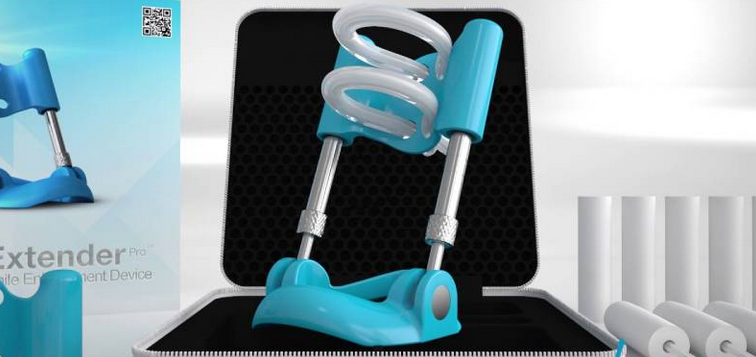
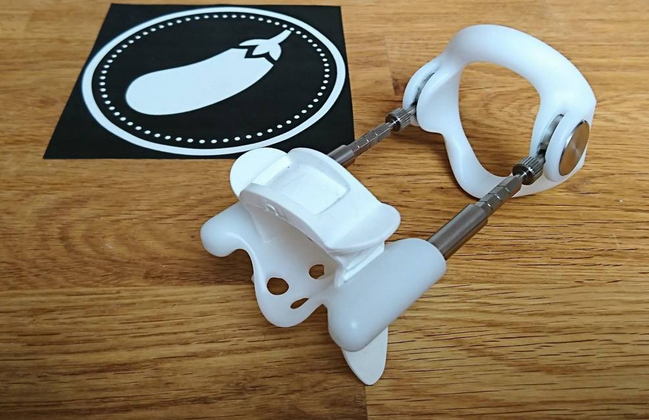 There are penis stretchers that are comfortable to wear than others. The variance is due to the value for your money, and expensive devices offer enough comfort throughout the day. You need a comfortable device that you can wear for long hours and will not cause harm to your skin or cause pain when you wear it for longer hours. Most penis traction devices have additional padding on the place of contact to increase comfort. It is essential to look for penile extenders that promote comfort and complies with medical standards.
There are penis stretchers that are comfortable to wear than others. The variance is due to the value for your money, and expensive devices offer enough comfort throughout the day. You need a comfortable device that you can wear for long hours and will not cause harm to your skin or cause pain when you wear it for longer hours. Most penis traction devices have additional padding on the place of contact to increase comfort. It is essential to look for penile extenders that promote comfort and complies with medical standards.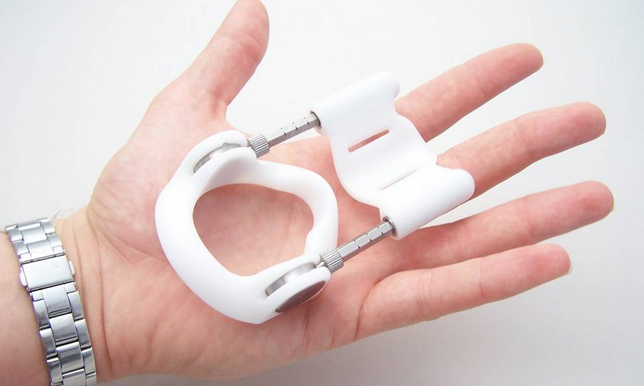 Different penile extenders provide various tensions and stretch penile tissues. The best penis extenders allow you to adjust pressure and tighten the ring that fits your shaft and provides more tension. It is essential to buy legit devices that will enable you to control the amount of pressure that the shaft gets when using the equipment. If a penile extender has more tension, then it will increase the size of the shaft.
Different penile extenders provide various tensions and stretch penile tissues. The best penis extenders allow you to adjust pressure and tighten the ring that fits your shaft and provides more tension. It is essential to buy legit devices that will enable you to control the amount of pressure that the shaft gets when using the equipment. If a penile extender has more tension, then it will increase the size of the shaft.
 Over the past few years, most people have shifted to fat burners because they lose weight. Most of the products you will find online or in the market will not disappoint because they have the right ingredients.
Over the past few years, most people have shifted to fat burners because they lose weight. Most of the products you will find online or in the market will not disappoint because they have the right ingredients. As stated earlier in this post, there are various health benefits of using these supplements. You need to understand that when you boost your metabolism, you are in the position of burning more fat and calories. In other words, you need to understand that fat burners offer your metabolism a boost by providing your body the required nutrients. Also, the result of these products enables your body to become a furnace for burning fat.
As stated earlier in this post, there are various health benefits of using these supplements. You need to understand that when you boost your metabolism, you are in the position of burning more fat and calories. In other words, you need to understand that fat burners offer your metabolism a boost by providing your body the required nutrients. Also, the result of these products enables your body to become a furnace for burning fat.
 One of the main reasons why most entrepreneurs go for LLC is due to less paperwork involved. When comparing it with corporations, you will notice that they provide limited liability, and they hold annual shareholders’ meetings and make annual reports.
One of the main reasons why most entrepreneurs go for LLC is due to less paperwork involved. When comparing it with corporations, you will notice that they provide limited liability, and they hold annual shareholders’ meetings and make annual reports. More entrepreneurs are going for LLC because they are flexible when distributing profits to the owners. It is also crucial to note that they are not needed to distribute them equally or based on the ownership percentages. On the other hand, corporations must distribute profits to shareholders depending on the type of share and the number of shares.
More entrepreneurs are going for LLC because they are flexible when distributing profits to the owners. It is also crucial to note that they are not needed to distribute them equally or based on the ownership percentages. On the other hand, corporations must distribute profits to shareholders depending on the type of share and the number of shares. It is crucial to understand that corporations have a fixed management structure with a board of directors that controls and manages various day-to-day activities. On the other hand, shareholders must meet annually to elect directors and conduct different company business. However, this is not the case with the LLCs because they have various ways to run the business.
It is crucial to understand that corporations have a fixed management structure with a board of directors that controls and manages various day-to-day activities. On the other hand, shareholders must meet annually to elect directors and conduct different company business. However, this is not the case with the LLCs because they have various ways to run the business.




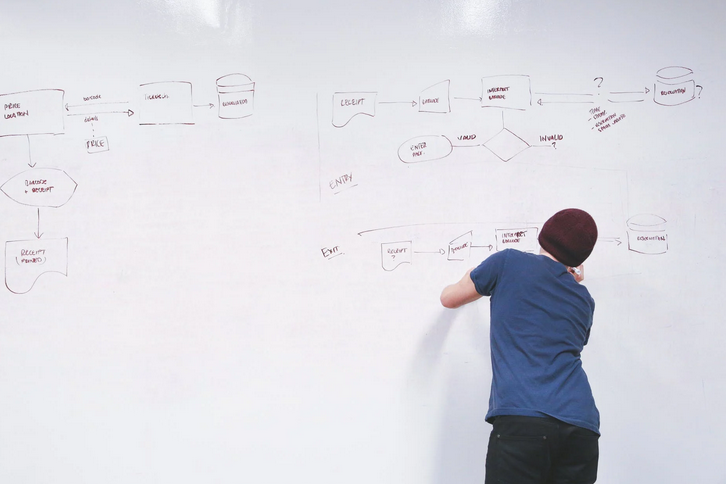


 Do you need a professional wedding photographer? You can find one if you decide to research. When you want to get the best deal for your wedding, you should start this process by gathering enough wedding information. You can do this by asking some of your close friends who had a lovely wedding that you attended. They will refer you to the best photographers that they hired for their wedding.
Do you need a professional wedding photographer? You can find one if you decide to research. When you want to get the best deal for your wedding, you should start this process by gathering enough wedding information. You can do this by asking some of your close friends who had a lovely wedding that you attended. They will refer you to the best photographers that they hired for their wedding. Although you can get a cheap deal with a new photographer to the industry, you should find a person you can trust. As you know, perfection is a result of experience. Although it sounds obvious, it is a good idea to take into account your budget before you reach out to a wedding photographer. You should be ready to break the bank if you get one who will deliver excellent work.
Although you can get a cheap deal with a new photographer to the industry, you should find a person you can trust. As you know, perfection is a result of experience. Although it sounds obvious, it is a good idea to take into account your budget before you reach out to a wedding photographer. You should be ready to break the bank if you get one who will deliver excellent work.
 Aspen bedding is another excellent material that you might want to give a try. There are two types when it comes to aspen bedding. The first one is the kiln-dried shavings and regular shavings. Both materials are similar in a number of ways and this means getting either of them will still make it possible for you to enjoy the many benefits associated with it. Some of the characteristics associated with the bedding are that they are non-toxic, no chemicals, dust-free, scent-free, eco-friendly and the list continues.
Aspen bedding is another excellent material that you might want to give a try. There are two types when it comes to aspen bedding. The first one is the kiln-dried shavings and regular shavings. Both materials are similar in a number of ways and this means getting either of them will still make it possible for you to enjoy the many benefits associated with it. Some of the characteristics associated with the bedding are that they are non-toxic, no chemicals, dust-free, scent-free, eco-friendly and the list continues.
 The feces of a cat that is in good health are usually not very creamy. This makes it a lot easy for the automatic litter box to collect them irrespective of the mechanism being used. If the cat has a health condition that makes it urinate excessively or have very creamy feces, you should factor that in when choosing an automatic litter box for it. The types of food that your cat eats can also be a contributing factor.
The feces of a cat that is in good health are usually not very creamy. This makes it a lot easy for the automatic litter box to collect them irrespective of the mechanism being used. If the cat has a health condition that makes it urinate excessively or have very creamy feces, you should factor that in when choosing an automatic litter box for it. The types of food that your cat eats can also be a contributing factor.
 It is crucial to understand that garden fountains provide a soothing sense of serenity. Therefore, if you decide to buy one, you need to know some of the best buying guides you should consider. But as a beginner, you can conduct your research to recognize some of these factors.
It is crucial to understand that garden fountains provide a soothing sense of serenity. Therefore, if you decide to buy one, you need to know some of the best buying guides you should consider. But as a beginner, you can conduct your research to recognize some of these factors. After you have identified where you will place your fountain, then you are at a suitable position of determining the right shape and size you need. However, for you to make the right decision, think about your water fountain purpose. By doing this, you will know the overall size and shape you need.…
After you have identified where you will place your fountain, then you are at a suitable position of determining the right shape and size you need. However, for you to make the right decision, think about your water fountain purpose. By doing this, you will know the overall size and shape you need.…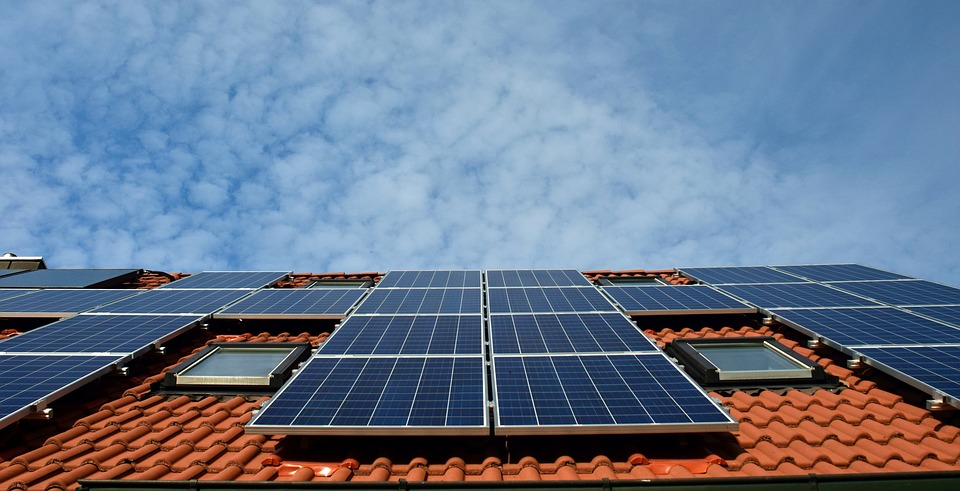
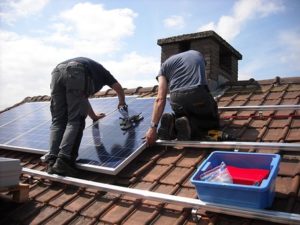



 Chocolate truffles have a fancy sweet treat that is a delight to have. Even better, you can always prepare them at home. Ideally, you only need some cream and natural chocolate. Start by heating the cream as you pour the chocolate on it to prepare the ganache. After the ganache is set, roll it into small balls and apply your coating of choice. However, truffles are a varying confection, which can be made following a couple of dietary restrictions and user preferences.
Chocolate truffles have a fancy sweet treat that is a delight to have. Even better, you can always prepare them at home. Ideally, you only need some cream and natural chocolate. Start by heating the cream as you pour the chocolate on it to prepare the ganache. After the ganache is set, roll it into small balls and apply your coating of choice. However, truffles are a varying confection, which can be made following a couple of dietary restrictions and user preferences.
 Choosing the size
Choosing the size The final decision has to be made based on your budget. You could want to
The final decision has to be made based on your budget. You could want to 
 Crowd funding has become one of the common ways of getting startup loans for business. It basically involves getting small loan amounts from some people until it is enough to get the total amount required. Anybody is allowed to give a loan to a business idea that they believe in. Some websites do promote crowd funding campaigns. One only needs to share their business idea which is then published and those who believe in the idea invest in the business. This is an idea that has become trendy in the recent past and attracted investors globally.
Crowd funding has become one of the common ways of getting startup loans for business. It basically involves getting small loan amounts from some people until it is enough to get the total amount required. Anybody is allowed to give a loan to a business idea that they believe in. Some websites do promote crowd funding campaigns. One only needs to share their business idea which is then published and those who believe in the idea invest in the business. This is an idea that has become trendy in the recent past and attracted investors globally.